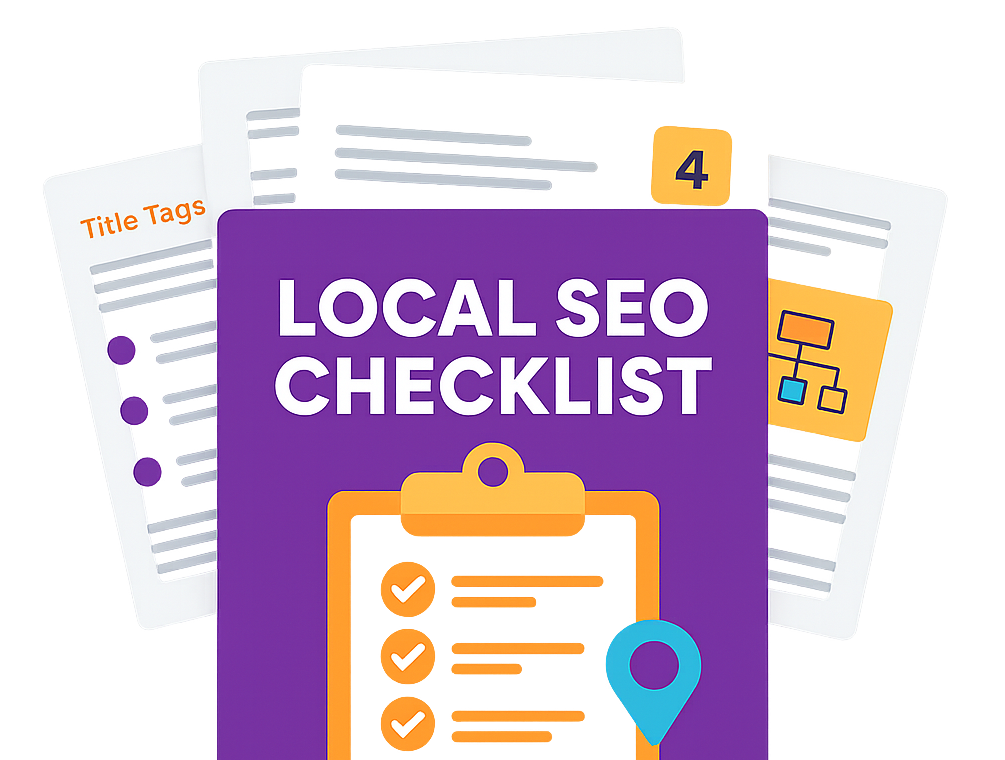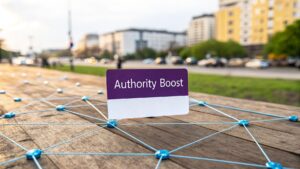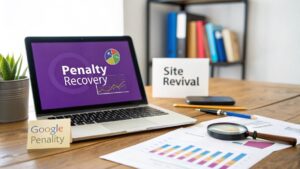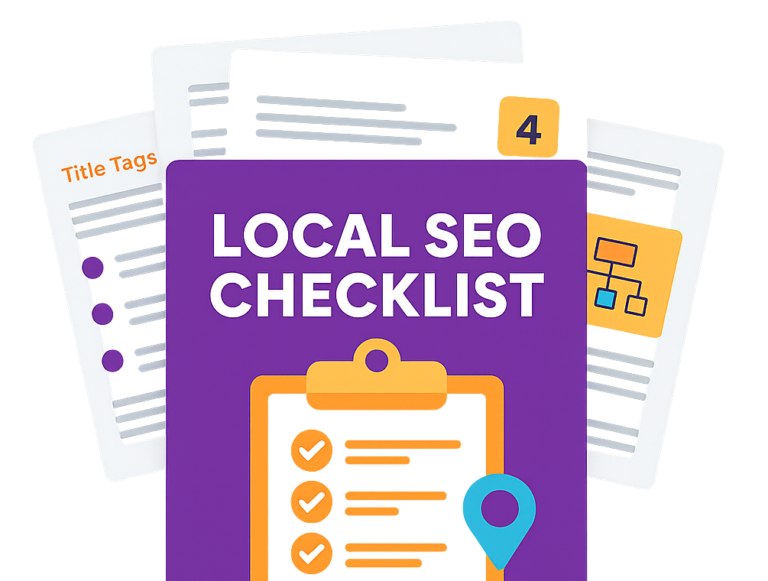Embarking on your search engine optimisation (SEO) journey can feel like learning a new language. With endless acronyms and ever-changing algorithms, it's easy to feel overwhelmed. But what if you could bypass the jargon and focus on proven strategies that deliver tangible results? This guide is designed to do just that. We've distilled the complexities of SEO into seven fundamental, actionable tips perfect for anyone starting out.
Whether you're a small business owner in Cambridgeshire, an e-commerce startup, or a marketing manager looking to solidify your strategy, these core principles will provide a robust foundation for boosting your online visibility. Forget guesswork; it's time to learn the essential seo tips for beginners and start making a real impact on your website's performance.
To gain a comprehensive understanding of your online presence and where SEO fits in, it's beneficial to explore a broader beginner's guide to digital marketing to see how all the pieces connect. In this article, however, we will focus specifically on making your website more attractive to search engines like Google. We'll cover everything from foundational keyword research and on-page optimisation to the technical checks and analytics that ensure your efforts are paying off.
1. Mastering Keyword Research and Target Selection
Think of keyword research as the foundational blueprint for your entire SEO strategy. It’s the process of identifying and analysing the exact words and phrases your potential customers are typing into search engines like Google. By understanding their language, you can create content that directly answers their questions and meets their needs, making this one of the most crucial SEO tips for beginners to grasp. It's about aligning your website's content with what your audience is actively searching for.

This process involves more than just guessing; it requires a strategic balance between search volume (how many people are searching for a term), competition (how many other websites are trying to rank for it), and relevance (how closely the term relates to your products or services). For a startup in Cambridgeshire or a local e-commerce business, getting this right means attracting high-quality traffic that is more likely to convert into customers.
How to Implement Keyword Research
Effective keyword research helps you avoid creating content that nobody is looking for. As a beginner, it's wise to focus on specific, less competitive phrases first.
- Start with Free Tools: You don’t need an expensive subscription to begin. Use tools like Google Keyword Planner, Ubersuggest, or AnswerThePublic to generate a list of initial ideas.
- Focus on Long-Tail Keywords: These are longer, more specific phrases (usually 3+ words) like ‘wireless bluetooth headphones under £100’. They have lower search volume but much higher buyer intent and less competition, making them perfect for new websites.
- Analyse the Competition: Look at the websites that are already ranking for your target keywords. What topics are they covering? You can often uncover valuable keyword opportunities they might have missed.
- Use Google's Features: The 'People also ask' and 'Related searches' sections on Google's results page are goldmines for discovering related queries and understanding user intent more deeply.
- Organise into Topic Clusters: Group related keywords together. For instance, a fitness blog could have a central "beginner yoga" page linked to smaller pages on "beginner yoga poses," "yoga mats for beginners," and "benefits of yoga for beginners." This organised structure shows Google you have expertise in the subject.
For a visual walkthrough of the fundamental concepts, this video from Ahrefs provides an excellent starting point:
2. On-Page SEO Optimisation
Once you have your keywords, the next step is to master on-page SEO. This refers to the practice of optimising the individual pages of your website to improve their search engine rankings and attract more relevant traffic. It involves fine-tuning both the visible content and the behind-the-scenes HTML source code elements that you have direct control over. Getting this right is a fundamental part of any successful strategy and one of the most impactful SEO tips for beginners to implement.

Think of on-page SEO as making your webpage perfectly clear and appealing to both search engines and human users. By structuring your content logically and using your target keywords in key places, you help Google understand what your page is about, increasing its chances of being shown to the right audience. For a local Cambridgeshire business, this could mean optimising a service page to rank for "emergency plumber in Cambridge," directly connecting you with customers in need.
How to Implement On-Page SEO
Effective on-page optimisation signals to search engines that your content is high-quality, trustworthy, and relevant to a user's query. As a beginner, focusing on these core elements will yield the most significant results.
- Optimise Your Title Tags: This is the clickable headline shown in search results. Keep it under 60 characters and place your primary keyword near the beginning. For example, "Best Italian Restaurant in Central London | Luigi's Trattoria".
- Write Compelling Meta Descriptions: This is the short summary that appears under your title tag. While not a direct ranking factor, a well-written description (under 160 characters) encourages clicks. Think of it as an advert for your page.
- Structure Content with Headers: Use one unique H1 tag for your main page title, incorporating your main keyword. Use H2s, H3s, and so on to break up your content into logical, readable sections. This improves user experience and helps search engines understand the content hierarchy.
- Create Clean, Descriptive URLs: Your page URL should be simple and contain your keyword. Avoid long, confusing URLs with numbers and special characters. For instance,
yourwebsite.co.uk/services/beginner-yoga-classesis far better thanyourwebsite.co.uk/serv.php?id=8921. - Optimise Your Images: Use descriptive file names (e.g.,
seo-tips-for-beginners.jpg) and add relevant alt text. Alt text helps visually impaired users and gives search engines another clue about your page's content. - Use Internal Linking: Link to other relevant pages on your own website. This helps visitors discover more of your content and distributes "link equity" or ranking power throughout your site, showing Google how your content is related.
3. High-Quality Content Creation
Content is the very heart of SEO; without it, search engines have nothing to rank. High-quality content is what separates websites that succeed from those that stagnate. It’s the process of creating original, well-researched, and genuinely valuable material that directly answers a user's search query. This is one of the most fundamental SEO tips for beginners because search engines like Google are designed to reward pages that provide the best user experience and most comprehensive information.

This principle moves beyond simply inserting keywords into a page. It's about establishing your website as a trustworthy authority on a topic. When you consistently produce exceptional content, you attract natural backlinks, keep visitors on your site longer (increasing dwell time), and encourage social sharing, all of which are powerful ranking signals. For a startup in Cambridgeshire or any new business, creating superior content is the most sustainable way to outrank established competitors over time.
How to Create High-Quality Content
Producing standout content requires a strategic approach. It’s about understanding your audience's pain points and creating the single best resource to solve them.
- Adopt the 'Skyscraper Technique': Popularised by Brian Dean of Backlinko, this involves finding top-ranking content for your target keyword and then creating something significantly better. Improve it by making it more comprehensive, adding original data, including better visuals, or presenting it in a more engaging format.
- Write for People, Optimise for Google: Your primary goal is to help your reader. Write compelling introductions that hook them immediately and use clear, accessible language. Once your draft is complete, you can then refine it by naturally incorporating your target keywords.
- Include Unique Elements: Differentiate your content by adding original case studies, expert interviews, proprietary data, or unique insights. This makes your content more valuable and difficult for competitors to replicate.
- Focus on Readability: Use tools like Grammarly to check for spelling and grammatical errors. Break up long walls of text with short paragraphs, subheadings, bullet points, and images to make your content easy to scan and digest.
- Build Topic Clusters: Don't just write one-off articles. Create a central 'pillar' page for a broad topic (e.g., "Beginner's Guide to Digital Marketing") and link it to several 'cluster' articles that cover specific subtopics in more detail (e.g., "SEO for Small Business," "Social Media Strategy"). This organisational structure demonstrates your expertise to search engines.
4. Technical SEO Fundamentals
Think of technical SEO as the work done under the bonnet of your website. It involves optimising your site's infrastructure to help search engines like Google crawl, index, and understand your content more effectively. While content is king, technical SEO ensures the king can actually enter the castle. For beginners, this might sound intimidating, but getting the basics right is a powerful way to gain a competitive edge.

This area of optimisation addresses everything from site speed and mobile-friendliness to crawlability and security. A technically sound website provides a better user experience, which Google rewards with higher rankings. For instance, Amazon's dominance is partly due to its lightning-fast site speed, while Pinterest uses structured data (a technical element) to create rich, eye-catching pins in search results. These fundamentals are non-negotiable in today's digital landscape.
How to Implement Technical SEO Basics
You don't need to be a developer to make significant improvements. Focusing on a few key areas can have a huge impact, making this one of the most vital SEO tips for beginners.
- Monitor Your Site Health: The first step is to know where you stand. Install and regularly check Google Search Console. It's a free tool that alerts you to crawl errors, indexing issues, and security problems directly from Google.
- Prioritise Site Speed: A slow website frustrates users and hurts your rankings. A crucial part of technical SEO involves dedicated website speed optimisation efforts to ensure your site loads quickly for visitors and search engines. Use Google's PageSpeed Insights to test your pages and get actionable recommendations.
- Ensure Mobile-Friendliness: With most searches now happening on mobile devices, having a responsive website is essential. Use Google’s Mobile-Friendly Test tool to see how your site performs on a smartphone and fix any usability issues.
- Compress Your Images: Large image files are a common cause of slow load times. Use tools like TinyPNG or image editing software to compress your images before uploading them, and consider modern formats like WebP.
- Implement Schema Markup: This is code that helps search engines better understand your content, which can lead to rich snippets in search results. For a deeper dive, you can learn more about why schema markup is so important for SEO.
- Use a Logical Site Structure: Organise your website with clear navigation, including breadcrumbs, to help both users and search engine crawlers find their way around. A tool like Screaming Frog can help you audit your site's architecture.
5. Local SEO for Local Businesses
If you run a business with a physical location or serve a specific geographic area, like a plumber in Cambridgeshire or a café in Cambridge city centre, then Local SEO is non-negotiable. It’s the practice of optimising your online presence to appear in searches made by people nearby. Think of searches like ‘best pizza near me’ or ‘electrician in my town’. Mastering this is one of the most impactful SEO tips for beginners with a local customer base.
This targeted approach ensures you aren’t competing with national or global brands for every search term, but instead focusing on the customers who are most likely to walk through your door or book your services. For businesses targeting a local audience, diving deeper into specific Local SEO strategies is crucial for turning online searches into real-world footfall and revenue. It's about being the most visible and trusted option in your immediate area.
How to Implement Local SEO
Getting your business to show up prominently on Google Maps and in the local search results pack requires a dedicated strategy. It’s a powerful way to connect directly with motivated local customers.
- Claim and Fully Optimise Your Google Business Profile: Your Google Business Profile (GBP) is your most important local SEO asset. Claim it, and fill out every single section with accurate information: address, phone number, opening hours, services, photos, and business description. This is often the first interaction a customer has with your business online.
- Prioritise Customer Reviews: Actively encourage satisfied customers to leave reviews on your GBP listing and other relevant sites like Trustpilot or Yell. Positive reviews build trust and are a significant local ranking factor. Crucially, always respond to all reviews, both positive and negative, in a professional manner.
- Ensure NAP Consistency: Your business Name, Address, and Phone number (NAP) must be identical across all online directories, social media profiles, and your website. Inconsistencies can confuse search engines and harm your local rankings.
- Create Location-Specific Content: If you serve multiple areas, create dedicated landing pages for each location (e.g., ‘Plumbing Services in Ely’, ‘Emergency Plumber in St Ives’). Tailor the content to each specific area, mentioning local landmarks or unique community aspects to enhance relevance.
- Build Local Backlinks: Earn links from other local businesses, community organisations, local news websites, or event sponsorships. These local signals tell Google that your business is a legitimate and active part of the community.
You can explore a curated selection of the best local SEO tools in 2023 on bare-digital.com to help streamline these efforts.
6. Link Building and Authority Development
Think of link building as earning a vote of confidence from other websites. When a reputable site links to your content, it signals to search engines like Google that your website is trustworthy and authoritative. This process of acquiring high-quality "backlinks" is a cornerstone of effective SEO, directly influencing your site's ability to rank for competitive terms. For beginners, understanding this is a crucial step beyond on-page optimisation.
This isn't about getting as many links as possible; it’s about securing quality links from relevant and respected websites within your industry. For a local service provider in Cambridgeshire, a link from a local business directory or a Cambridge news site is far more valuable than a dozen links from irrelevant blogs. Authority development is the long-term outcome of a consistent, ethical link-building strategy, establishing your brand as a go-to resource.
How to Implement Link Building
Earning links is a proactive process that centres on creating value for others. As a beginner, your focus should be on organic, relationship-driven methods rather than quick-fix schemes.
- Create "Linkable Assets": Develop content that other websites will naturally want to reference. This could be original research, a comprehensive guide, a free online tool, or an insightful case study. Content that solves a problem is inherently link-worthy.
- Focus on Local Citations and Listings: For businesses targeting a local audience, getting listed in reputable local directories (like Yelp or your local Chamber of Commerce) is an easy and essential first step. It builds local relevance.
- Use Broken Link Building: Find a broken link on a high-quality website in your niche. Create a piece of content that could serve as a replacement, then reach out to the site owner to let them know about their broken link and suggest yours as a better alternative. It's a helpful, non-spammy approach.
- Leverage Existing Relationships: Reach out to suppliers, partners, or even happy customers who have their own websites. A simple request for a mention or a link on a relevant page can be a powerful way to get started.
- Practise Genuine Outreach: Building relationships is key. Before asking for a link, engage with the website or author on social media or by commenting thoughtfully on their blog. Personalised, genuine outreach is far more effective than a generic template email.
To explore this topic in more detail, you can discover more about how to build backlinks on bare-digital.com.
7. SEO Analytics and Performance Monitoring
Launching an SEO strategy without tracking its performance is like sailing without a compass. SEO analytics is the process of measuring, collecting, and analysing your search performance data to understand what’s working and what isn't. By monitoring key metrics, you can make informed, data-driven decisions, demonstrate the return on investment (ROI) of your efforts, and continuously refine your approach. This makes it one of the most powerful SEO tips for beginners to master for sustainable growth.
Think of it as your website's health check-up. Regular analysis helps you diagnose issues, celebrate wins, and uncover new opportunities for optimisation. For a local service provider in Cambridgeshire, this could mean tracking how many phone calls come from organic search; for an e-commerce store, it’s about linking organic traffic directly to sales revenue.
How to Implement SEO Analytics
Getting started with analytics doesn't have to be overwhelming. The key is to focus on the metrics that truly matter to your business goals, rather than getting lost in a sea of data.
- Set Up Foundational Tools: Your first step is to install Google Search Console and Google Analytics 4 (GA4). Search Console tells you how Google sees your site (e.g., keyword rankings, impressions, technical issues), while GA4 shows you how users behave once they arrive.
- Establish Key Performance Indicators (KPIs): Don't just track traffic. Define what success looks like. This could be organic traffic, keyword ranking improvements, conversion rates (like form submissions or sales), or user engagement metrics like time on page.
- Track Branded vs. Non-Branded Keywords: Separate searches for your company name ("branded") from generic searches for your products or services ("non-branded"). This helps you understand both your brand's strength and your ability to attract new customers who don't know you yet.
- Monitor Core Web Vitals: These user experience metrics are a direct ranking factor. Use Google Search Console's Core Web Vitals report to check for issues with your site's loading speed, interactivity, and visual stability.
- Schedule Regular Reviews: Set aside time each month to review your performance. Create a simple report or dashboard that highlights your main KPIs. This regular check-in ensures you stay on track and can quickly adapt your strategy. While Google's tools are excellent, you can find a breakdown of Google Analytics alternatives if you need different features or have specific privacy concerns.
7 Key SEO Tips Comparison
| SEO Strategy | Implementation Complexity | Resource Requirements | Expected Outcomes | Ideal Use Cases | Key Advantages |
|---|---|---|---|---|---|
| Keyword Research and Target Selection | Moderate (requires tools and analysis) | Moderate (tools subscription, time) | Better targeting, increased relevant traffic | Content planning, targeted marketing | Guides content creation, improves relevance |
| On-Page SEO Optimisation | Moderate to High (technical skills needed) | Low to Moderate (time and knowledge) | Improved search rankings, better user experience | Website content optimisation | Full control, immediate SEO impact |
| High-Quality Content Creation | High (time and expertise intensive) | High (research, writing, media) | Long-term organic growth, authority building | Brand building, inbound traffic growth | Attracts backlinks, increases engagement |
| Technical SEO Fundamentals | High (technical expertise required) | Moderate to High (developer time/tools) | Enhanced crawlability, site performance improvements | Website infrastructure, large sites | Improves indexing, mobile usability, speed |
| Local SEO for Local Businesses | Moderate (business profile management) | Low to Moderate (ongoing management) | Increased local visibility, foot traffic | Physical stores, service areas | Targets local customers, faster rankings |
| Link Building and Authority Development | High (relationship and strategy driven) | Moderate to High (outreach and content) | Higher domain authority, improved rankings | Competitive niches, brand authority building | Boosts rankings, drives referral traffic |
| SEO Analytics and Performance Monitoring | Moderate (data interpretation skills) | Low to Moderate (tools and setup) | Data-driven decisions, ROI tracking | All SEO efforts and ongoing optimisation | Identifies success, prioritises improvements |
Your Next Steps in SEO Mastery
You have now navigated the foundational pillars of search engine optimisation, from the strategic selection of keywords to the critical analysis of your performance data. The collection of SEO tips for beginners laid out in this guide represents more than just a checklist; it's a strategic framework for building a powerful and sustainable online presence. By embracing these principles, you are no longer a passive participant in the digital landscape but an active architect of your brand's visibility.
The journey into SEO can feel vast, but it is conquered one step at a time. The key is to transform knowledge into action. Resist the urge to feel overwhelmed by the sheer number of tasks. Instead, view these tips as a modular toolkit. Your initial goal is not to master everything overnight but to begin implementing these practices consistently. Remember, the most successful SEO strategies are not born from a single, grand gesture but from the cumulative effect of many small, well-executed optimisations over time.
From Theory to Tangible Results
So, where do you begin? The most effective approach is to prioritise. Start by focusing on the "quick wins" that can deliver the most significant impact with the least resistance.
- Actionable First Steps:
- Conduct an On-Page SEO Audit: Choose your top five most important service or product pages. Methodically review and optimise their title tags, meta descriptions, and header structure. Ensure your primary keyword is present and naturally integrated.
- Claim Your Local Listing: If you serve a local community like many businesses in Cambridgeshire, your immediate priority should be to claim and fully optimise your Google Business Profile. This is one of the most powerful and cost-effective local SEO tactics available.
- Establish a Content Cadence: You don't need to publish a blog post every day. Start by committing to one high-quality, genuinely helpful piece of content per month. Focus on answering a real question your target customer has.
The true value of mastering these SEO tips for beginners lies in the long-term competitive advantage it provides. As you become more adept at optimising your website, you build a valuable asset that generates organic traffic, leads, and sales around the clock. This is not just about ranking higher; it's about creating a more resilient, authoritative, and profitable business.
Feeling ready to accelerate your growth but need a guiding hand? The team at Bare Digital specialises in translating these foundational SEO principles into customised, results-driven strategies for businesses just like yours. Contact us today for a complimentary SEO Health Check and discover the specific opportunities waiting for your brand.








